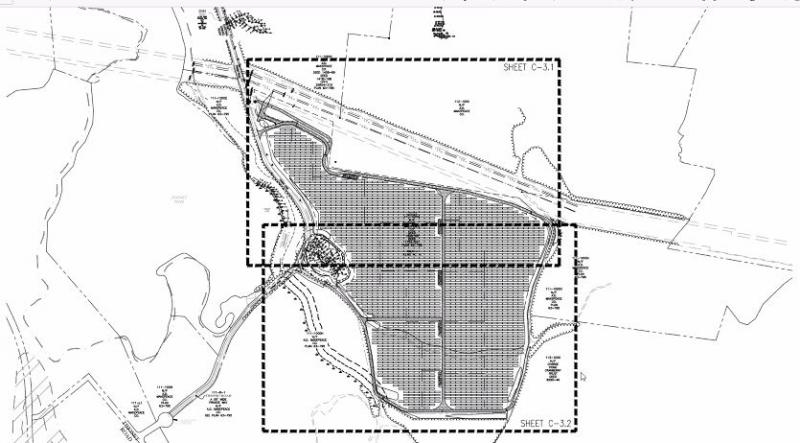Selectmen waive right of first refusal for Makepeace properties
The Board of Selectmen voted 3-2 to waive the town’s right of first refusal to purchase for three A.D. Makepeace Company properties for which solar farms are planned by the Borrego company.
The land was restricted for agricultural use under Chapter 61A, which meant it was taxed at a lower rate. Because A.D. Makepeace wants to sell the land for a non-agricultural use, the town has the right to purchase the land itself before it is sold to a different company.
At their April 27 meeting, the Selectmen waived the right of first refusal for all three properties: 140 Tihonet Rd., 150 Tihonet Rd., and 27 Charge Pond Rd.
Large solar arrays are planned for each site. The three projects total roughly 180 acres in size.
The project has raised ire from activists concerned about the environmental impact of the project from the destruction of natural habitats and potentially contaminated stormwater runoff.
Recently, about 125 people sent letters to Selectmen urging them to use the town’s right of first refusal to sell the property to conservation groups, Selectman Judith Whiteside said. Whiteside said that she had heard that conservation groups first reached out to the company about purchasing the land roughly a month ago, which she said makes it seem like the groups didn’t intend to purchase the land
Selectman Alan Slavin said that if the town allowed a conservation group to purchase the land, the town would lose out on income from the proposed solar field. As a compromise, he suggested that perhaps a conservation group could purchase the land and pay the town back for that lost revenue over the next 20 years. In this case, that would mean the group would pay back about $600,000 plus the projected solar income in yearly installments for 20 years.
Slavin said his idea would mean that all parties would win: The land would be conserved, the company could sell the land and the town would get the income.
Selectman Patrick Tropeano said that if the town or a conservation group purchased the land, there would be no access to the site, making maintenance impossible — but it’s unclear if that would be the case, or what maintenance would be required.
Selectman Peter Teitelbaum said that he was voting to decline the town’s right of first refusal because climate change poses a dire threat to Wareham. He said a meteorologist told him that Wareham was more vulnerable to a Category 3 hurricane than any other city or town in the state. A storm that severe could lead to the destruction of hundreds or thousands of properties. Teitelbaum said that alternative energy sources like solar are the best way to combat climate change.
Selectmen Tropeano, Teitelbaum, and Whiteside voted to waive the town’s right of first refusal, while Selectmen Slavin and Jim Munise thought the town should use that right.
Teitelbaum said that conservation groups could still attempt to purchase the land from the company, if they so choose.
The three parcels are the subject of a recent lawsuit that argues the solar farms should not have been approved by the Planning Board.
















